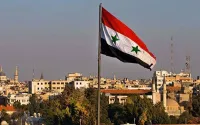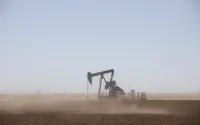Feb. 3 - The Inuit living in some of the world's iciest regions are feeling the effects of global warming. The ice caps where they hunt are thawing earlier every year; polar bears are hunting in unfamiliar places; non-indigenous species are being seen in the Arctic and last summer local inhabitants saw their first wasp on Canada's Baffin Island. None of this is news to global-climate experts, who are meeting this week in Exeter, England, to discuss the scope and rate of climate change. Indeed, the English conference comes on the heels of a warning released last week by the International Climate Change Task Force that politicians have less than a decade to prevent worldwide disasters caused by global warming.
But for the 155,000 Inuit spread across Russia, Canada, Greenland and Alaska, the issue has taken on a greater urgency. Sheila Watt-Cloutier, chair of the Inuit Circumpolar Conference (ICC), says that the Inuit livelihood is being affected by the changes--and that the United States is at least partly to blame. Watt-Cloutier and her group are planning to file a petition in the next few weeks with the Inter-American Commission on Human Rights, claiming that their human rights have been have been endangered due to excessive U.S. gas emissions. In a phone interview from her home in Iqaluit in northern Canada, Watt-Cloutier spoke to NEWSWEEK's Ginanne Brownell about the group's plans and the Inuit experience of climate change. Excerpts:
NEWSWEEK: What effects of global warming have you seen?Sheila Watt-Cloutier: Over the last decade our hunters have been witnessing changes in certain areas. For example, some are saying that polar bears seem to be much thinner, and they have been finding bears closer and closer to food sources, places where they did not [previously] venture. The weather has become very unpredictable and that creates a lot of havoc not only with those of us who hunt on the sea ice, but with animals, as well. New species of fish and birds have been spotted up in the Arctic that are not indigenous. People [have also] witnessed changes where ice forms later [and] the river ice breaks up so much earlier; it used to be in mid-June, and now it has been as early as mid-May. There is not as much snow, and the snow we get melts much earlier. In terms of summertime, in the course of my own life it was very rare that we ever used to wear shorts and T shirts because it never got warm enough. But today because there are such long heat waves where it is 30 Celsius [86 degrees Fahrenheit] for an entire month, the whole community goes to the beach and swims. It gets so hot that bugs do not even come around anymore.
How have these changes affected the lives of the Inuit people?We come from a wise culture and are attuned to the cycles of life. But lately there has been confusion: our ancient wisdom says we have no control over weather and environment, but we now understand [that there is] a connection. Just as the world came together to do the right thing on the contaminants issue at the Stockholm Convention [a global agreement reducing emissions of persistent organic pollutants ] we must do the same on the greenhouse-gas emissions. It's not just an environmental issue, but also a health issue and a survival issue.
Has the ICC always been political or is this a new direction you have been taking the group?We have been trying to find ways in which to put ourselves on the political map in a world where you have a powerful country like the United States that is staunchly standing for the status quo and does not want to change its economic policies and move away from dependence on oil gas and fossil fuels. We have a challenge on our hands. How do 155,000 Inuit of the world defend themselves in a world of billions and how do we make this a real people issue? We do not see it in terms of technology and politics. We see it as something that is changing our way of life everyday as we live it.
So is this why you are pursuing this as a human-rights case--to get the world to listen?We have explored what international instruments are out there to protect us. The U.S. and others feel they can continue business as usual when our entire way of life as we know it may end in my grandson's lifetime. So those are the issues, that is our strategy and we are moving forward with it and see in coming months how this will pan itself out.
Later this spring the scientific report from the Arctic Climate Impact Assessment (ACIA) will be published. Its overview, published last November, gave the most detailed account of how climate change has affected the Arctic. Your reaction to the report?The ACIA work is groundbreaking on many levels. It is the first comprehensive regional climate-change assessment ever taken. Over 250 scientists worked on the project, but also it is a marriage of Western and indigenous knowledge. We have been studied to death for decades up here in the Arctic, and we have not been part of the actual research itself. So with the ACIA we wanted to ensure that there would be indigenous knowledge injected into the process as much as possible.
What was the most surprising finding?It did make for stark reading. The two conclusions [that affect us the most] are that the marine species that are dependent upon sea ice are likely to decline--with some facing extinction--and that for the Inuit, warming could disrupt or destroy hunting. One of the things that people cannot fully understand or appreciate is the actual power of the hunt and hunting culture. People think, "Oh they are just killing animals"... When we go out on the land and teach [our children] to hunt, it's not just about aiming the gun and skinning the seal. It is also teaching courage and patience and how not to be impulsive and to use sound judgment. It is character skills that are transferable to the modern world.
Your ICC offices in Ottawa received a call recently from the U.S. Embassy in Canada asking how long you were going to be holding your post. How did you interpret this and were you upset that you were ruffling feathers?I am not upset at all [but] it is interesting that they would call to find out when my term is over. It means we are making our mark somewhere and getting under the skin of certain players. It does not surprise me, and I do not think we can go through with our work and not expect some criticism. The U.S. is a large and powerful country whose economic policies we do not feel are good for the planet. I am not in this work to be in conflict with others, but I am trying to say this is what is happening … We are now changing the manner in which climate change is being debated and put it in the arena of human rights. It might make people nervous because these are countries that pride themselves in being very strong on human-rights issues.






